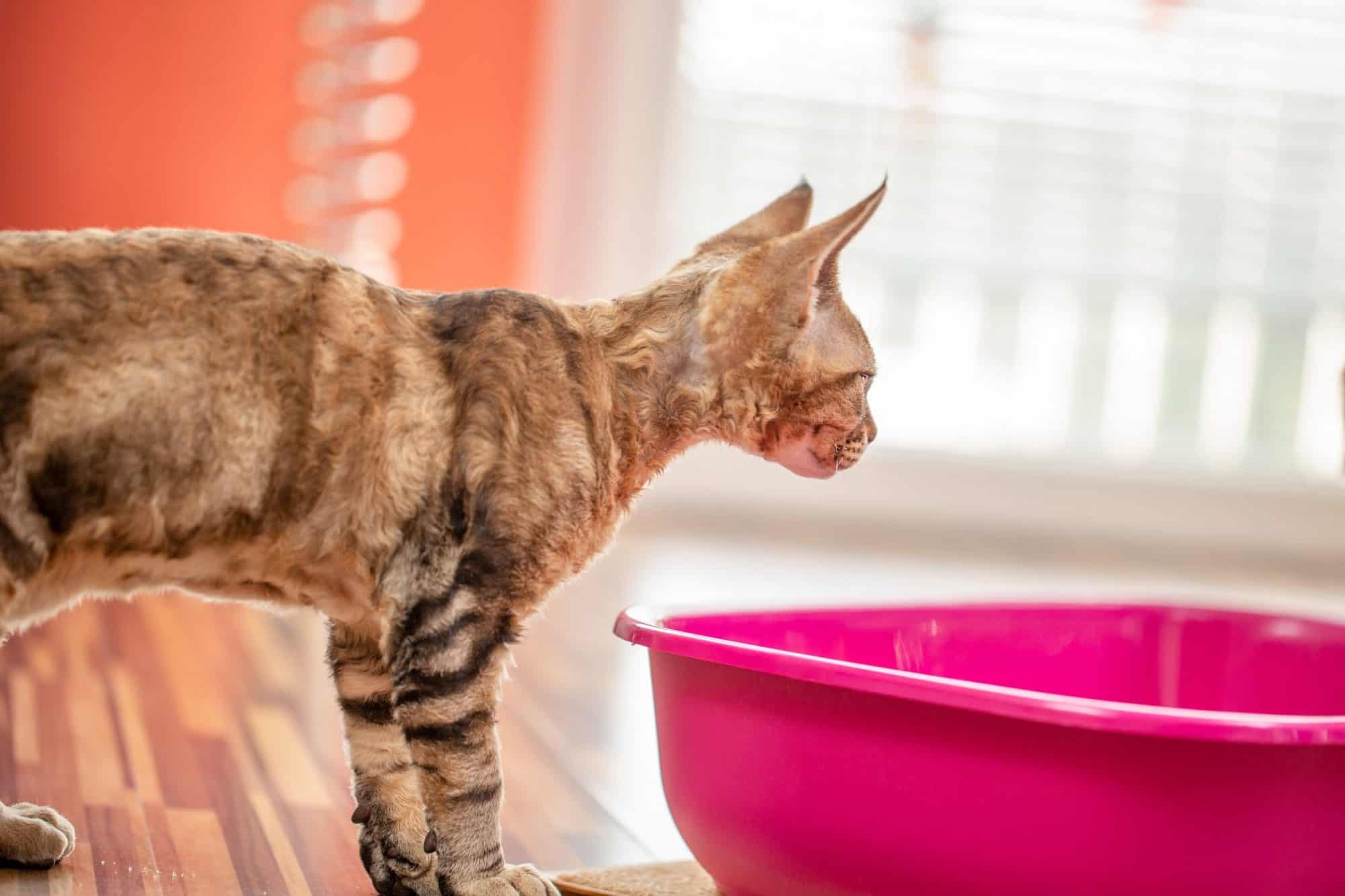Urinary Tract Infections in Cats

Thanks to the daily task of scooping the litter box, cat owners are well aware of their favorite feline’s potty habits. And while it may not be your favorite place to visit, the litter box holds important clues regarding cat health.
At Main Street Veterinary Clinic, one of the most common concerns and sources of frustration we hear from our clients with cats is regarding a cat peeing outside of the litter box, which is often a telltale sign of urinary tract issues. Our experts are here to help you understand these conditions, know the warning signs, and learn about available treatments.
Understanding Urinary Tract Problems in Cats and Their Causes
Cats of any age and breed can experience urinary tract problems, which can be painful and dangerous for your cat’s health if left untreated.
Urinary Tract Infections (UTIs)
Cats experience UTIs when bacteria enters the bladder or urethra and becomes infected.
Urinary Stones
Your cat’s urine naturally contains minerals that can clump together and form crystals in the bladder. These crystals cause painful urination, and your cat’s urine may be bloody.
Obstructed Urethra
If a cat’s urethra becomes completely blocked by stones, the cat won’t be able to urinate at all, and this is a veterinary emergency that requires immediate intervention.
Feline Idiopathic Cystitis
This mysterious condition mimics the symptoms of a UTI, even though no infection or stones exist. It is thought to be triggered by stress or a new diet.
Signs of UTIs and Other Urinary Problems in Cats
It’s important to contact us right away if your cat exhibits any of the following symptoms:
- Peeing outside of the litter box
- Frequently trying to urinate, but only passing a small amount
- Blood in the urine
- Straining when trying to urinate
- Crying out when trying to urinate
- Excessive licking of urinary opening
How Are Urinary Tract Problems Treated?
Your cat’s diagnosis will determine the course of treatment, which might include antibiotics (for a UTI), surgery to clear an obstructed urethra, or a special diet to dissolve bladder stones and prevent them from recurring.
What You Can Do for Your Cat’s Urinary Health
When it comes to cat care, urinary health is intrinsically linked to overall pet health and wellbeing. Here are some things you can do at home to minimize your cat’s risk of urinary tract problems:
- Make sure your cat has clean water at all times.
- Pet fountains can encourage cats to drink more water.
- Litter boxes should outnumber the cats in your household.
- Keep litter boxes in a quiet spot, and keep them clean.
- Use the type of litter your cat prefers.
- Maintain a regular routine to minimize your cat’s stress.
Urinary tract problems are not just inconvenient for pet owners who have to clean up “accidents,” they pose a significant risk to cat health—and life. Please contact us at (540) 951-1002 if you have concerns about your cat.

